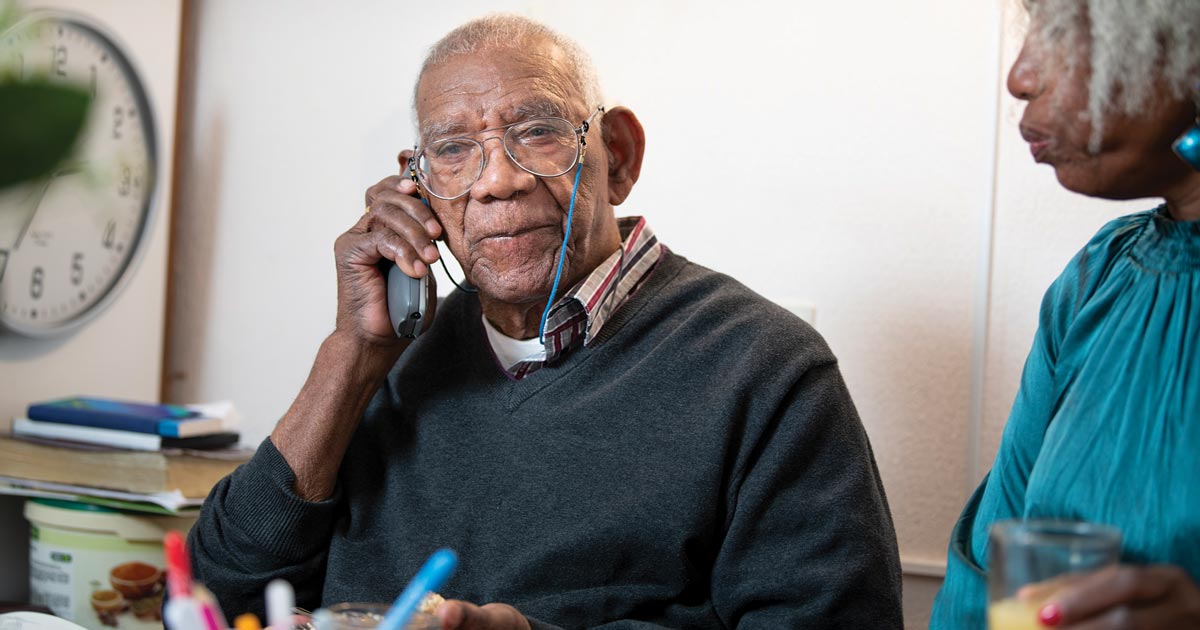(Family Features) Caring for a family member or loved one with a serious health condition like Parkinson’s disease (PD) can be a big undertaking and often takes a concerted effort from many family members and friends to provide the best care possible. Even if you’re not available to provide hands-on assistance on a consistent basis, there are ways to provide aid from a distance.
PD is one condition that may have an impact on the entire family, necessitating a broad care network. The second-most common neurodegenerative disorder behind Alzheimer’s disease, PD affects nearly 1 million nationwide, with more than 60,000 Americans newly diagnosed each year. Because it can be hard to tell if a loved one has the disease and no two people experience it quite the same way, some early signs to look for include tremors, slowness of movement and stiffness or rigidity, among others.
Organizations like the Parkinson’s Foundation have resources that can help you and your family members provide long-distance care to a loved one. As an ally to care partners, the Foundation aims to make life better for people living with PD and their families by improving care and advancing research toward a cure.
Tips for Long-Distance Caregivers
- Learn about your loved one’s condition.
You will be better able to provide support if you have a basic understanding of the disease. Be sure to gather information on the condition’s symptoms, how it is diagnosed and what treatment options are available. - Be well versed in your loved one’s needs.
Learn about his or her general health and keep a list of doctors and neighbors along with their contact information. Also keep any pertinent financial and legal documents readily accessible. - Keep an open line of communication with the primary caregiver.
As care partner responsibilities often increase over time – and can easily lead to burnout – be sure to let the primary caregiver know you are there for them. Consider sending a simple gift such as a hand-written card, flowers or a gift card for a self-care appointment, like a massage. - Consistently offer to help.
There are many ways you can offer support. If in doubt, directly ask how you can be of the most help. Even if you cannot be present to offer hands-on assistance, consider sending meals, troubleshooting technology issues or providing other assistance based on your skillset. You may even offer to have your loved one come stay with you for a while, if they are able to travel, to give the primary caregiver a respite from duties. - Call often.
Set a designated day and time each week to chat with your loved one and make the call faithfully, even if just to catch up for a few minutes. Consider using a video calling service so you can see each other, if possible, to provide an additional level of connection. - Talk finances.
Many people won’t ask for financial help, even if the limitations of a fixed income mean going without necessities, so it may be best to have this conversation proactively. If a regular subsidy isn’t possible, offer to buy groceries online, send a weekly meal, purchase medical supplies or help with household utility bills, transportation costs or home-related services. - Visit when possible.
If your budget allows, plan regular trips to check on your loved one and plan ahead with the primary care partner so you can provide respite. Offer to take on key responsibilities during your visit and provide a listening ear for the main caregiver while you’re there.
You can find an array of free resources, including a comprehensive Caring and Coping guidebook, a video library, podcast episodes, courses and an online community, at Parkinson.org/Caregivers. To learn more and find additional resources in English or Spanish, visit the website or call the Parkinson’s Foundation toll-free Helpline at 1-800-4PD-INFO (1-800-473-4636). MSN









